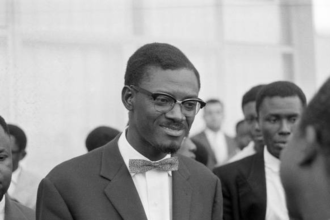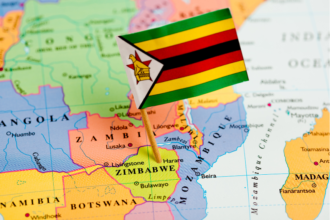In a year marked by significant political shifts across sub-Saharan Africa, Namibia’s ruling party, Swapo, has successfully retained its power. However, its hold on the presidency appears to have weakened. According to official results, Netumbo Nandi-Ndaitwah, Swapo’s candidate, won the presidential election with 57% of the vote, making history as the first female leader of Namibia.
Despite the victory, opposition parties have refused to accept the outcome, citing logistical issues and irregularities that marred the elections. While Swapo secured the presidency, it faced a setback in the parliamentary elections, recording its worst-ever performance, losing 12 out of its 63 seats. The questions are mounting: how did Swapo increase its presidential vote share despite this significant loss in parliament?
This pattern reflects a more significant trend across Africa this year, where incumbent governments have faced increasing challenges at the ballot box.
Why Are Long-Time Ruling Parties Losing Ground Across Africa?
Swapo’s experience is far from isolated. 2024 has been an unprecedented year for political change across Africa, with many long-standing ruling parties suffering major electoral defeats. The Botswana Democratic Party (BDP), which had ruled since the country’s independence in 1966, suffered a crushing blow in October’s elections. The BDP, which once held 38 seats in the 69-strong parliament, was reduced to just four seats, one of the most dramatic losses in the region’s political history. The BDP now faces the daunting task of remaining politically relevant with such a minimal presence in parliament.
Similarly, in Mauritius, the governing Alliance Lepep coalition, led by Prime Minister Pravind Jagnauth, experienced a stunning defeat in November. The alliance won only 27% of the vote, securing just two seats in the national parliament. In contrast, the opposition Alliance du Changement swept 60 out of 66 available seats, marking one of the most comprehensive political transformations in the country’s history.
These developments are part of a more significant regional trend. In Senegal, a political turnaround similar to that in Botswana took place, albeit differently. Just weeks before the election, opposition leaders Bassirou Diomaye Faye and Ousmane Sonko were imprisoned by President Macky Sall’s government. However, after significant domestic and international pressure, both leaders were released. Faye won the presidency in the first round, trailing the government candidate with only 36% of the vote.
How Are Economic Challenges Affecting African Governments' Popularity?
Even in cases where governments have not lost power, their political control and public support have been severely damaged. For example, South Africa’s African National Congress (ANC) retained power only after a challenging election campaign. The ANC, for the first time since the end of apartheid in 1994, fell below 50% of the vote. This unprecedented result forced President Cyril Ramaphosa to form a coalition government, giving up 12 cabinet positions to other parties, including key ministries like Home Affairs.
This shift reflects a broader regional trend: in 2024, many African governments faced significant challenges to their political legitimacy, particularly as rising economic hardship fueled public discontent. Financial mismanagement, nepotism, and corruption have been key issues driving these changes. Citizens have become increasingly intolerant of government failures, with public protests and opposition movements gaining momentum.
One political observer noted, “The ANC’s struggle at the polls signals that the political landscape is changing in South Africa. Citizens are no longer willing to overlook corruption or inefficiency.” These trends, evident in Namibia, Botswana, and Mauritius, will likely continue shaping elections across the continent in the years ahead.
What Is Driving Protest Movements Across Africa?
Economic hardship has been another key factor fueling political change in Africa. Across sub-Saharan Africa, high food and fuel prices have exacerbated the cost of living, increasing the financial strain on millions of citizens. This, in turn, has deepened frustrations with the status quo. In Kenya, for example, youth-led protests erupted in July and August, challenging the government of President William Ruto over its economic policies.
In many ways, these protests are not unique to Africa. Around the world, economic dissatisfaction has been linked to political change. In the United Kingdom, inflation played a key role in the defeat of Prime Minister Rishi Sunak and the Conservative Party. At the same time, economic discontent in the United States contributed to the rise of Donald Trump and the Republican Party.
However, what sets Africa apart is how opposition parties have adapted and learned from past electoral struggles. In Mauritius, opposition groups worked tirelessly to ensure electoral transparency, carefully monitoring every stage of the voting process. In Botswana, the opposition, including three major political parties and several independent candidates, united under the Umbrella for Democratic Change, orchestrating a highly effective mobilization campaign that ultimately led to the BDP’s defeat.
Can Africa's Democratic Resilience Continue Amid These Challenges?
One thing is clear as political transitions unfold across the continent: Africa is witnessing a remarkable demonstration of democratic resilience. Despite challenges from entrenched authoritarian regimes, citizens, civil society groups, and opposition parties have mobilized in large numbers to demand accountability and punish governments that have failed to meet their citizens’ needs. One international observer commented, “What we are seeing in Africa is not just a rejection of failed governments; it’s the birth of a new kind of democracy where citizens are actively pushing for change.”
In countries like Botswana, Mauritius, and Senegal, opposition leaders have learned from the past, adopting new strategies to protect the vote, build stronger coalitions, and more effectively challenge incumbent governments. This year, five African countries have seen opposition victories—a record number that underscores the growing democratic resilience across the continent.
With Ghana’s elections coming up and Malawi’s in 2025, opposition victories may continue. If Ghana experiences a power shift, 2024 will go down in history as a year of profound political change, with more opposition wins than any other year in sub-Saharan Africa.
Why Is Africa's Democratic Bounce-Back More Notable Than Ever?
Against the backdrop of a global democratic decline, which has seen rising authoritarianism in various regions, the political transformations taking place in Africa are particularly striking. While many countries worldwide have seen authoritarian leaders strengthen their hold on power, Africa has demonstrated a surprising degree of democratic bounce-back. “While many people think of Africa as a continent rife with authoritarian regimes, what’s happening now shows just how resilient democracy can be,” remarked an international democracy advocate.
International observers looking for positive examples of democracy’s resilience should pay more attention to sub-Saharan Africa. Despite the challenges of entrenched power, rigged elections, and repressive tactics, the continent has seen remarkable democratic resilience and a determined push for accountability. As African citizens demand greater political freedom and economic justice, the momentum for democratic change across the continent will likely continue to build.







